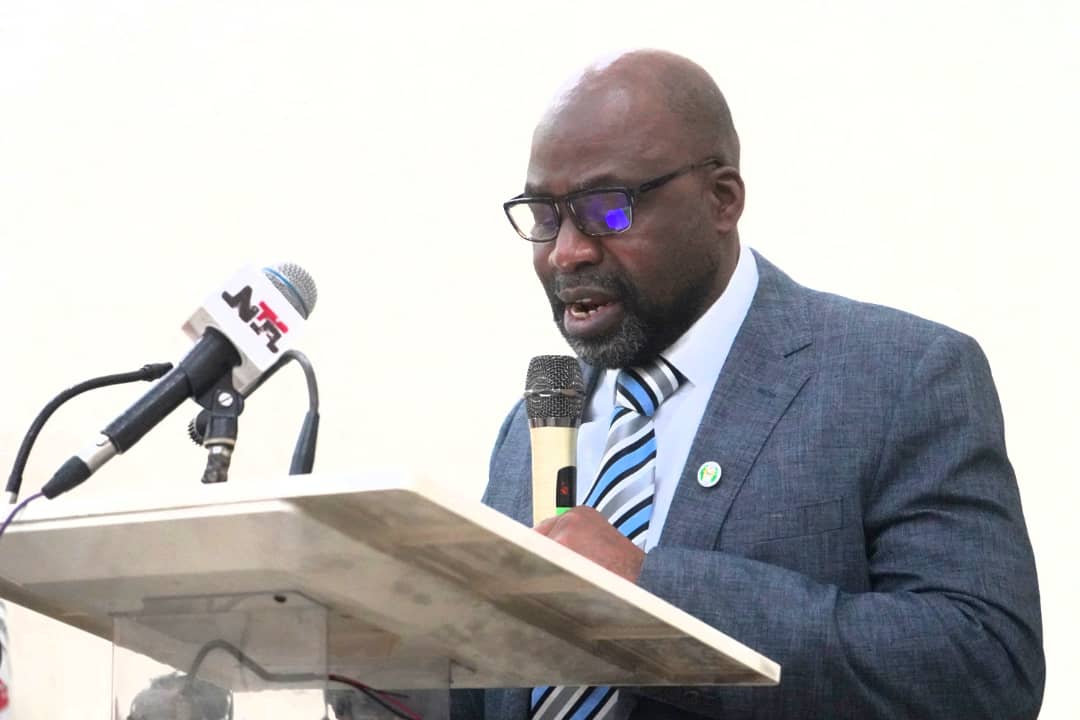The Chairman of the Independent Corrupt Practices and Other Related Offences Commission (ICPC), Professor Bolaji Owasanoye (SAN), has called for better negotiation skills in dealing with expiring international trade agreements as well as in establishing new ones.
He made this call in his opening remarks at a 2-day workshop on mitigating illicit financial flows themed “Capacity Building for Nigeria’s Negotiators for Improved Terms of Engagement with the Rest of the World” which kicked off at the Commission’s headquarters recently.
In his paper titled “From Gunboat Diplomacy to the Negotiation Table”, Professor Owasanoye opined that globalization has made interactions with diverse global communities inevitable, however the rules of engagement are more often than not, unfavorable to poor economies of the global south who lack the development and technological advancements of the global north.
“This has often led to poorly constructed trade agreements which have ultimately been disadvantageous to the growth of the country and also opened loopholes to encourage illicit financial flow”, he said
Prof. Owasanoye illustrated the archaic practice of European super powers using their military might to cohesively reach one-sided agreement with economic minions. This “Gunboat diplomacy” as he referred to it, eventually forced nations without capacity to depend on imperialists for raw materials and overseas markets.
According to Owasanoye, “This inimical approach was eventually countered by the Hague Convention (No 2) Respecting the Limitation of the Employment of Force for the Recovery of Contract Debts of 1907 and then replaced by diplomatic protection whereby states exchanged notes on how investors should be treated by other governments.”
The ICPC boss enumerated several reasons why there was need to focus on capacity building to improve negotiation skills especially in the trade and investment sector.
In his words, “Nigeria requires trade and investment to grow the economy. To attain this desire, we must have the potential to harness capital and technology in a manner that is not inimical to development.”
He further pointed out that the pillars of international trade agreements were erected years ago and they tended to confer undue advantage to colonialists while Africa – itself largely under colonial rule – had little to no say and thus at a disadvantage. These pillars, in his opinion, do no not work for Nigeria.
The Chairman stated that Nigeria must align with one of the ideals expressed recently by President Thabo Mbeki which champions the need to ‘build capacity to combat illicit financial flows at national and continental levels.
In conclusion, Professor Owasanoye stated that participants for the workshop were drawn from middle level officers in public sector agencies that undertake negotiations due to the diverse range and complexity of issues under consideration in the workshop.
He acknowledged the invaluable support of Ford Foundation as regards the project and said that “the foundation continues to demonstrate unquestionable commitment to the development of Nigeria through support for the civil society and selected government institutions.”
In the same vein, the Chairman Inter-Agency Committee on Stopping Illicit Financial Flows (IFFs) from Nigeria, Dr. Adeyemi Dipeolu, lauded the initiative of the Commission in organizing the workshop stating that negotiations happen in various day to day activities from the most mundane to the extremely significant occurrences.
Dr. Adeyemi, who is also the Special Adviser to the President on Economic Matters in the Office of the Vice-President, suggested that it was essential for Nigeria to develop a crop of officials who are skilled in international negotiations in general as well as key thematic sectors.
He added that the cost of improper discussions has implications of varying degree. In his opinion, “The consequences of poor negotiations can range from paying twice as much as your neighbor for the same item to costing your country a billion dollars in a mining concession.”
While concluding his presentation, Dr. Dipeolu said public officials who are involved in negotiations must develop a personal repertoire of strategy and tactics. This, he suggested was achievable via early and continuous exposure to negotiation scenarios which would in turn build experience via constant participation.
The capacity building workshop featured presentations from various notable speakers including; Professor Jonathan Aremu – Consultant at Ecowas, “Understanding Trade Agreements”, Mrs Patience Okala – Nigeria Investment Promotion Council, “Understanding Investment Agreements”, Mrs Iniobong Abiola Awe – Director, Department of Climate Change, Ministry of Environment, “Understanding Environmental Agreements”,
Others include: Professor Abiola Sanni, SAN. Managing Partner Abiola Sanni & Co. “Understanding Tax Agreements” Dr. Esa Onoja – Chief of Staff to the Hon. Chairman ICPC ModeratorDr Dayo Ayoade – Extractive Industries Expert and Senior Lecturer Faculty of Law, University of Lagos. “Understanding Natural Resource Agreements”


